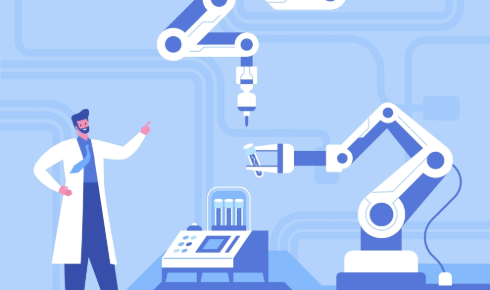Time to reboot biology degrees?

8 September 2025
Students need degrees that recognise the increasing influence of data-led research says Dr Matt Bawn
In recent years the biological sciences have undergone a quiet revolution. It is not just about pipettes, petri dishes and fieldwork any more. Data, in quantities unimaginable just a decade ago, now underpins everything from genomics and drug development to ecology and epidemiology.
And yet many undergraduate bioscience degrees still don’t reflect this reality.
The amount of data being generated in biology is growing at an exponential rate. Whether it is sequencing the ‘genomes’ of entire ecosystems, tracking disease outbreaks in real time, or using AI to predict protein structures, biologists today must be as comfortable with code as they are with a microscope.
Foundational tools
Digital skills, such as data wrangling, visualisation, statistical analysis and basic programming, are no longer niche add-ons. They are foundational tools that enable scientists to ask better questions, work more efficiently and collaborate across disciplines.
These skills and tools are now not only central to how we do science, but also to how we should think as scientists. The scientific mindset must increasingly include fluency with data, comfort with complexity and the ability to critically engage with algorithmic outputs. As disciplines converge, the capacity to move between biological insight and computational reasoning becomes essential.
Despite the importance of these skills, many bioscience students graduate without significant exposure to data-led methods. A recent survey of students from 19 medical schools across the UK found that 80% of students had not received any data science teaching at all. A survey of instructors in undergraduate life sciences reported that digital skills such as coding, modelling and reproducibility were undervalued compared with their use by early-career researchers. In many degrees, digital training is limited to optional modules or brief workshops. Confidence, time pressures and lack of institutional support are common barriers, both for staff and students.
The result is a skills gap that affects not only academic research, but also the biotech industry, healthcare and environmental science – all sectors that are crying out for graduates who can think quantitatively and navigate complex data.
These concerns were echoed at the RSB’s Accreditation Conference 2025, where participants from across the UK higher education landscape shared their views. The responses painted a patchy and often discouraging picture, with many educators admitting that digital methods are included in courses only ad hoc, often dependent on individual enthusiasm or understanding rather than a coordinated strategy. Several participants also acknowledged that not enough is being done or answered “not really” when asked whether their courses genuinely incorporated data-led exploration.
It was also suggested that digital tools are more consistently embedded in apprenticeship or workplace-based learning, indicating that traditional degree routes are falling behind.
Rethinking teaching
To close this gap, we need to rethink not just what we teach, but how we teach. Traditional hypothesis-driven lab work is important, but we must also embrace data-driven exploration. Students should be encouraged to interrogate large, messy datasets, explore patterns before formulating hypotheses and make use of real-world digital tools.
This also means creating space for interdisciplinary thinking. When computer science meets biology, innovation follows. But for this to happen, our courses must foster collaboration and provide opportunities for students to work across subject boundaries.
Participants at the Accreditation Conference also discussed the state of digital competencies in bioscience curricula, concluding that skills such as using R or Python cover “just the basics”. Again, digital elements were often found to be positioned as optional bolt-ons, not part of core training, and key barriers included a lack of time within tightly packed curricula, limited confidence among educators and variable levels of student engagement.
These reflections underline the importance of structural change. Without integrating such skills into the heart of degree programmes, progress will be slow and uneven.
The Society’s latest degree accreditation framework provides a potential lever for change, but full implementation may take up to five years as institutions cycle through their renewal periods. I hope that drawing attention to the situation will help accelerate reform, prompting proactive curriculum reviews before formal accreditation deadlines arrive.
Encouragingly, good practice is emerging. Some programmes have embedded coding into lab modules, while others use public datasets to teach both subject content and analytical skills. Online resources such as the Galaxy Project also offer accessible, high-quality training. We don’t need to redesign entire degrees overnight. Even small steps, such as incorporating data handling into core modules or using digital case studies in seminars, can shift the culture and build student confidence.
As AI begins to transform scientific research, these issues are becoming even more urgent. Today’s As AI begins to transform scientific research, these issues are becoming even more urgent students are tomorrow’s researchers, policymakers and industry leaders. We owe it to them, and to the future of science, to ensure they are equipped with the digital tools they will need.
While this article has focused on higher education, it must be pointed out that digital literacy in STEM needs to begin much earlier. The RSB’s Evolving 5-19 Biology aims to ensure that biology education in school is fit for the future. Embedding data and digital thinking at every stage of education will ensure the next generation proceeds through the STEM pipeline not just prepared, but empowered.
Dr Matt Bawn is a senior lecturer at Newcastle University specialising in pathogen genomics and bioscience data


